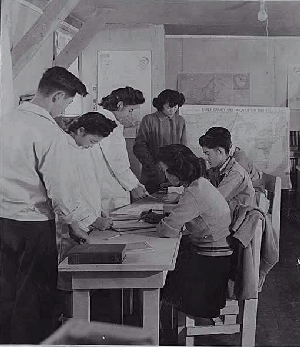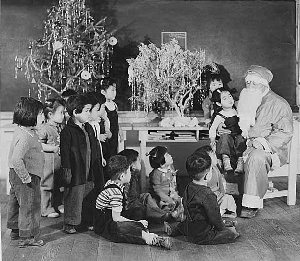Minidoka Irrigator
|
|
Hundreds of books and articles are written about the adults in the camps, but few discuss the stories of their children. Children are often forgotten in discussions about Japanese incarceration during World War II. In an attempt to make camp life as normal as possible, schools were instituted for children to continue their education. Although classes were conducted in barracks instead of classrooms, and there was a shortage of supplies and teachers, children seemed to adapt well to their new settings and their alternative curriculums. Some children, however, adapted too well to their environment. Juvenile delinquency became a major problem in the camps. Parents were concerned with: preferences of friends or other social settings over family settings like in meal times, increased numbers of cigarette butts at high schools, lack of interest or non-attentiveness in school. While juvenile delinquency became an important concern, not all children reflected this behavior. Activities such as sports, hobby classes, clubs, and other recreational forms of entertainment kept the interests of many children, keeping many of them out of trouble. By looking at The Minidoka Irrigator, a camp newspaper, we will uncover on the daily lives, activities, and problems affecting the youth population. 1942
1943
1944
1945
|
*full text/pdf via Densho Digital Archive; see also Minidoka Irrigator holdings at UW

